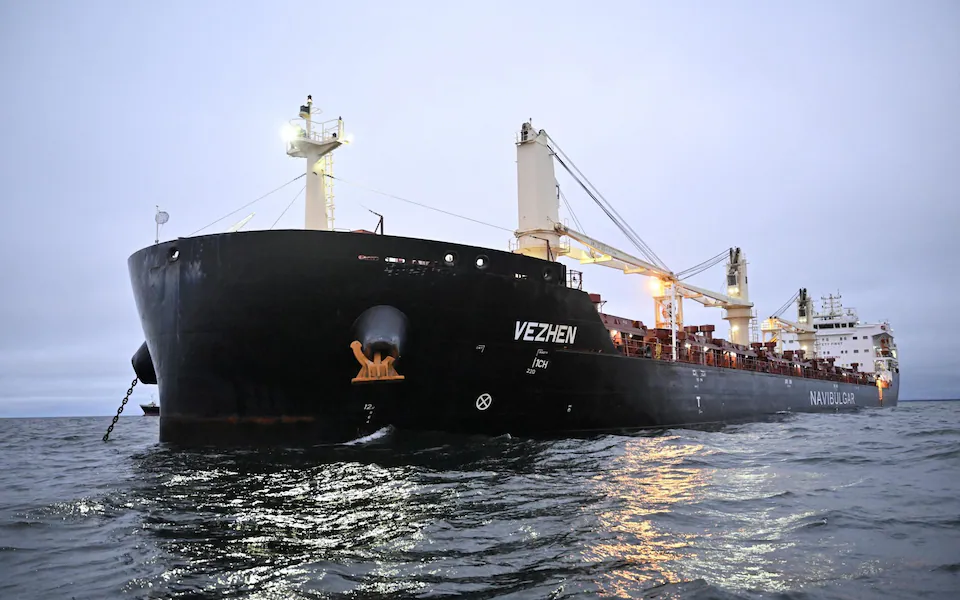by Admin
Jan 27, 2025
The Swedish Coast Guard announced on Monday that it pursued and intercepted a Bulgarian vessel suspected of damaging a fiber-optic cable under the Baltic Sea connecting Sweden and Latvia.
In response to the vessel’s damage, the Latvia government deployed a warship on Sunday to assess the extent of the damage, while Swedish authorities launched an investigation into what they have classified as “aggravated sabotage.”
Amid increasing concerns over undersea infrastructure security, countries bordering the Baltic Sea have intensified their defensive measures following recent incidents of suspected sabotage, with some western European analysts pointing accusing fingers at Russia as a potential culprit.
The Bulgarian vessel Vezhen was pursued by the Swedish Coast Guard on Sunday and directed into Swedish territorial waters, where it is now anchored as an investigation continues, according to Alexander Kalchev, CEO of Navigation Maritime Bulgare (Navibulgar), the ship’s owner.
Kalchev denied any involvement in sabotage, stating, “I am convinced that we cannot say this was a malicious act.”
The Malta-flagged vessel, carrying fertilizer from Ust-Luga in Russia to South America, was reportedly sailing in “extremely bad weather” on Saturday, based on information from the crew.
An inspection on Sunday revealed that one of the ship’s anchors was damaged and had dropped into the sea. Kalchev explained that the anchor may have dragged along the sea floor before being pulled back up.
Navibulgar, Bulgaria’s largest shipping company, announced it had appointed a Swedish agent and hired legal counsel to protect the interests of the crew and the company.
The vessel, built in 2022, is crewed by eight Bulgarians and nine Myanmar nationals. Swedish authorities boarded the ship on Sunday evening to conduct investigations, an intelligence official confirmed to AFP.
The damaged fiber-optic cable, located in Swedish territorial waters at a depth of at least 50 meters (55 yards), belongs to Latvia’s state radio and television center (LVRTC). The LVRTC reported “disruptions in data transmission services” but assured that alternative routes had been established, minimizing the impact on end users, though some delays in data speeds could occur.
Latvia’s navy identified a “suspect vessel,” the Michalis San, near the incident site, along with two other ships. Latvian Prime Minister Evika Siliņa stated that Swedish authorities had been notified, and both nations are cooperating closely on the investigation.
Swedish Prime Minister Ulf Kristersson confirmed his discussions with Siliņa, while NATO and European Commission President Ursula von der Leyen expressed solidarity with the affected countries. “The resilience and security of our critical infrastructure is a top priority,” von der Leyen wrote on X.

